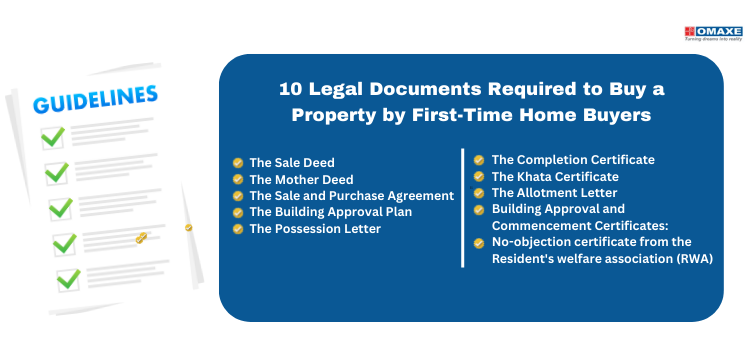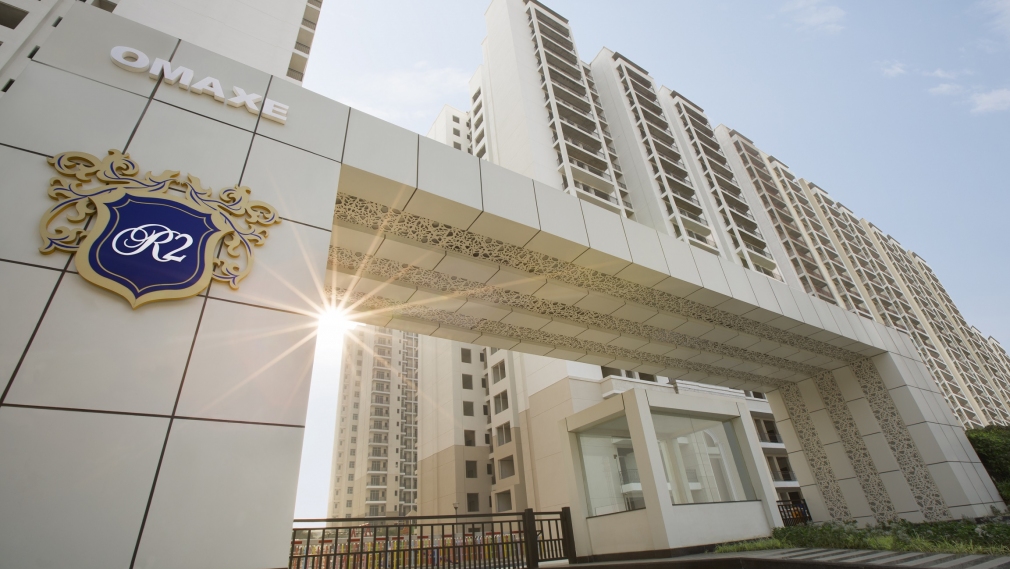Purchasing a home/plot/flat is one of the most important decisions you’ll ever make. It is a large sum of money and a serious financial choice. It’s also an emotional one! If you are meticulous with the legal documents required to buy a home and have a clear legal understanding of the process, buying a home can be an easy procedure. You must exercise caution at every stage of this process until it is completed.
The quantity of paperwork will grow if you buy it with a house loan. If you are getting a home loan, you will have to submit the property paperwork to the bank; if you are not getting a loan, you will receive the papers straight in your name. It requires extensive research, as well as the verification of numerous key property legal documents.
Let’s take a look at the Legal documents needed to Buy a House

10 Legal Documents Required to Buy a Property by First-Time Home Buyers:
1. The Sale Deed
One of the most important legal papers is a Sale Deed. It is evidence that the property has been sold and ownership has been transferred from the seller to the purchaser. This is the fundamental legal document that establishes you as the owner of the property you are purchasing.
As a result, when you legally register the property, you must prepare an original copy of this paper and submit it to the sub registrar’s office in your locality.
2. The Mother Deed
The mother deed is the primary document used to establish legal ownership of real estate property. It is the most significant document when starting a real estate purchase. The earliest on-paper records of a property are examined to trace its ownership history. In real estate jargon, these records are given the moniker of the parent or mother documents.
3. The Sale and Purchase Agreement
A sale and purchase agreement is a legally binding contract between a property’s buyer and seller. It outlines the sale’s agreed-upon terms, such as the price, the chattels, the settlement date, and any contingencies. A Sale and Purchase Agreement (SPA) is a legally binding document that details the terms agreed upon by the buyer and seller of a property. It is the primary Legal document required to Buy a Home in every sale transaction.
In essence, it spells forth the agreed-upon features of the transaction, offers a number of critical safeguards for all parties involved, and provides the legal foundation for the sale to be completed. As a result, the SPA is crucial for both sellers and buyers.
4. The Building Approval Plan
You must have a copy of the approved building plan issued to the developer by a municipal authority such as the building proposal department.
Also Read: Expert Tips for First Time Home Buyers in India: What You Must Know
5. The Possession Letter
A possession letter is a document issued by the developer in the buyer’s favour that specifies the date of possession of the property. It is given to the developer after the appropriate authority issues a completion certificate. The letter is written in the buyer’s name, and includes the anticipated completion date.
The possession letter serves as evidence of the builder’s agreement to provide the buyer with possession of the unit by the date specified in the possession letter.
6. The Completion Certificate
A completion certificate is a Legal document required to Buy a Home that certifies that a real estate project was completed according to a pre-approved construction plan. It is given after the project has been inspected, and it further states that it was built according to the approved building plan, and meets all of the essential standards specified by the local development authority or municipal corporation.
7. The Khata Certificate
This certificate, also known as extracts, has several names according to the state. It is one of the most critical documents to have when registering a new property. You’ll also need it if you ever sell your property and want to transfer ownership to someone else. This legal property document confirms that your property is listed in the local municipal records and that you have received consent before starting the building construction process. This document will be required if you apply for a house loan through a bank.
8. The Allotment Letter
If you intend to purchase a property in an under-construction complex, you must obtain a property allotment letter for your apartment/home as well as from the builder. Furthermore, because it mentions the property price, this letter is required when applying for a bank loan.
Purchasing a new home can be a simple process if the above-mentioned documentation and checks are completed. The more time you spend gathering as many documents for land purchase as possible, the more at ease you will be in the future.
Also Read: Important Things to Consider before Investing in Commercial Real Estate
9. Building Approval and Commencement Certificates:
A commencement certificate is a document issued by the local municipal government that allows the builders to start work on the project. The commencement certificate (or CC) is normally issued only when the developer has cleared all of the legal criteria and secured all of the necessary approvals for the building’s design.
10. No-objection certificate from the Resident’s welfare association (RWA)
It is recommended that you obtain copies of the developer’s Non-Objection Certificates (NOCs). The developer complies with the terms of the Intimation of Disapproval, or IOD, by obtaining a number of NOCs from various infrastructure agencies. These include the environment, traffic, tree authority, sewage, power, and fire departments, among others. The IOD cannot be issued to the developer without these NOCs.
When you apply for a loan, you will be required to provide this legal property document in its original version. It is necessary to provide proof of a person working on behalf of the property owner.

Conclusion
The buyer can ensure that the investment gives peace of mind and security by seeking proper legal guidance, scrutinizing paperwork, and verifying vital facts about the property. Top real estate developers in India like Omaxe can help you buy your home easily and will help you with the documentation.
FAQ’s
1. Is a NOC required for a home loan?
If you have a home loan, you must obtain a NOC on the loan account closure. Aside from that, you should request a NOC after successfully closing a Loan Against Property (LAP). In the case of an LAP, once you obtain the NOC, your property will be entirely yours
2. What is the legal process for buying a flat in India?
To ensure an effortless and legally compliant transaction, the legal process for buying an apartment in India consists of various steps. Here’s a rundown of the procedure:
- Begin by determining the area and type of flat you want to buy. Conduct extensive research and visit numerous homes to determine their suitability.
- After you’ve decided on a flat, perform a thorough due diligence check. Check the ownership, title deeds, encumbrance certificate, and authorized building plans of the land.
- All pertinent facts, such as the purchase price, payment conditions, possession date, and any other stipulations agreed upon by both parties, should be included in the agreement.
- The buyer is responsible for paying stamp duty and registration fees, which vary by state. Obtain an encumbrance certificate from the sub-registrar’s office following registration.
3. What is the role of the Property Registration Document?
Property registration establishes your legal ownership of the property. Another advantage of registration is that it assists the government in precisely predicting the census, surveys, and upkeep. Furthermore, only registered immovable properties can be used to secure loans.
4. What to know before buying a house in India?
To purchase a home in India, you must first qualify.
- Determine your budget.
- Find a reputable solicitor, notary, and real estate agent in your area.
- Look for the best mortgage rates.
- Select a location for your house.
- Maintain a high resale value.



2 Comments
Comments are closed.